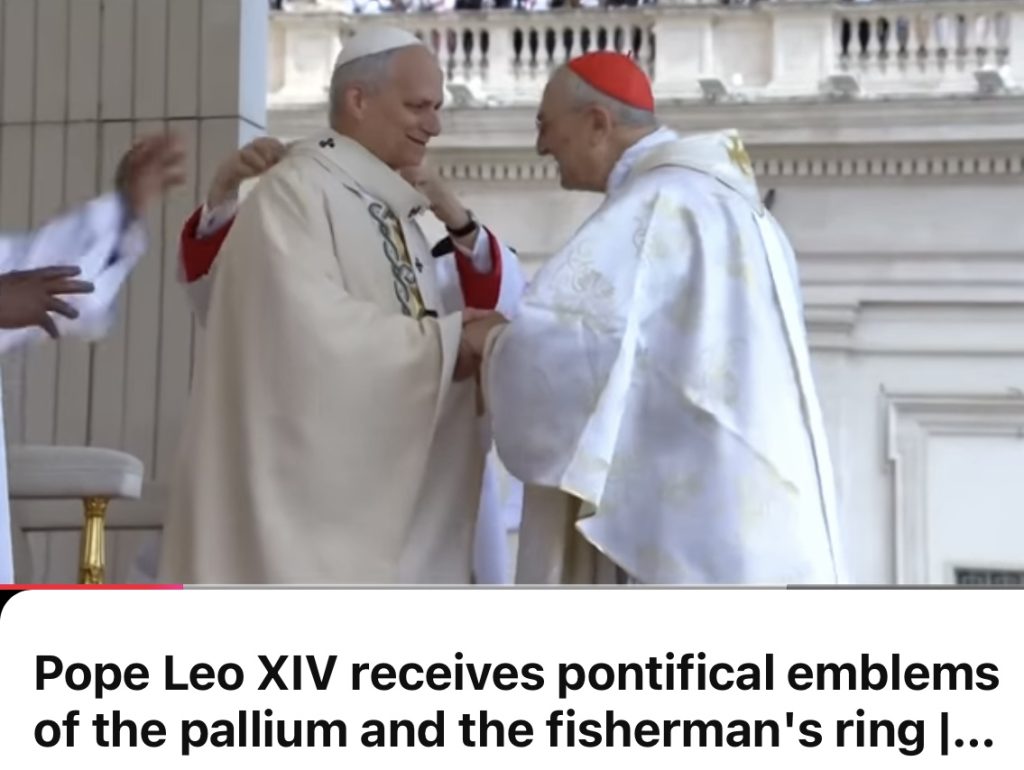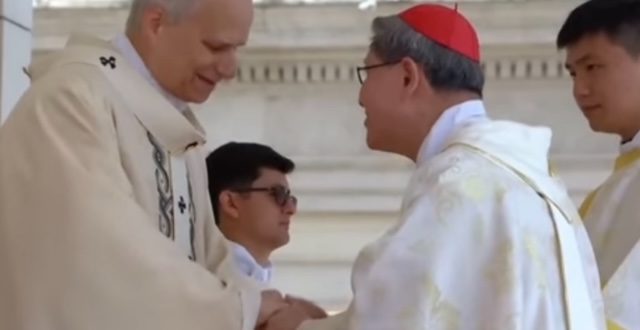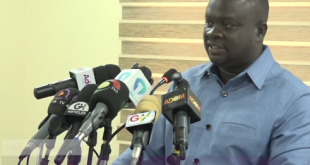By Apostle Professor Opoku Onyinah (Former Chairman of the Church of Pentecost)
One issue that often unsettles some Pentecostals and Evangelical Christians is the use of symbolism in the Catholic Church. As a Pentecostal, I attended the Inaugural Mass of Pope Leo XIV with curiosity, particularly to observe how symbolism would be expressed in the liturgy. What I discovered was both enriching and enlightening.
During the solemn procession into St. Peter’s Square, Pope Leo held a staff adorned with a cross. I later learned that this symbolizes Christ, the Good Shepherd, whom the Pope is called to follow. It also points to the apostolic commission given to Peter, on whose seat the Pope sits, when Jesus said, “Feed my lambs” (John 21:15 17).
At the heart of the ceremony, the Pope was invested with the Pallium and the Fisherman’s Ring. The pallium, woven from lamb’s wool, signifies pastoral care and humility, tempering leadership with compassion. The ring symbolizes his succession from Peter and represents a covenantal bond with the Church, much like a wedding ring symbolizes fidelity and devotion.

Another striking moment came during the Mass when the Pope sprinkled holy water on the congregation. I was informed that this act reminds Christians of our baptism—a sacred identification with the death, burial, and resurrection of Christ. It is a call to live in the newness of life, pursuing righteousness and reflecting Christ in all we do.
Some Pentecostals and Charismatics, too, engage in symbolic acts: the use of anointing oil, the laying on of hands, or prayer cloths. These are not powerful in themselves, but serve as faith-filled expressions of God’s presence and power. Sacraments such as baptism and the Lord’s Supper—instituted by Christ—remain central, not because of ritual formality, but because of their spiritual depth and obedience to Christ’s command.
So why do we quarrel over symbols? Whether it is the staff, pallium, ring, water, bread, anointing oil, or the laying on of hands—these are all symbols. If we allow such outward forms to divide us, we lose sight of the One to whom they point. Can we not look to Jesus, who unites rather than divides?
Pope Leo made a profound appeal, “The more faithful and obedient to Christ we are, the more united we are with one another.” He continued, “We Christians are called to pray and work together to reach this goal step by step, which remains the work of the Holy Spirit.”
As I listened to him, I was reminded of Ephesians 4:12–16—spiritual maturity leads to unity. The more we grow into Christ, the more the self within us is humbled. “He must increase, but I must decrease” (John 3:30).
 Adoa News Adoa News
Adoa News Adoa News




